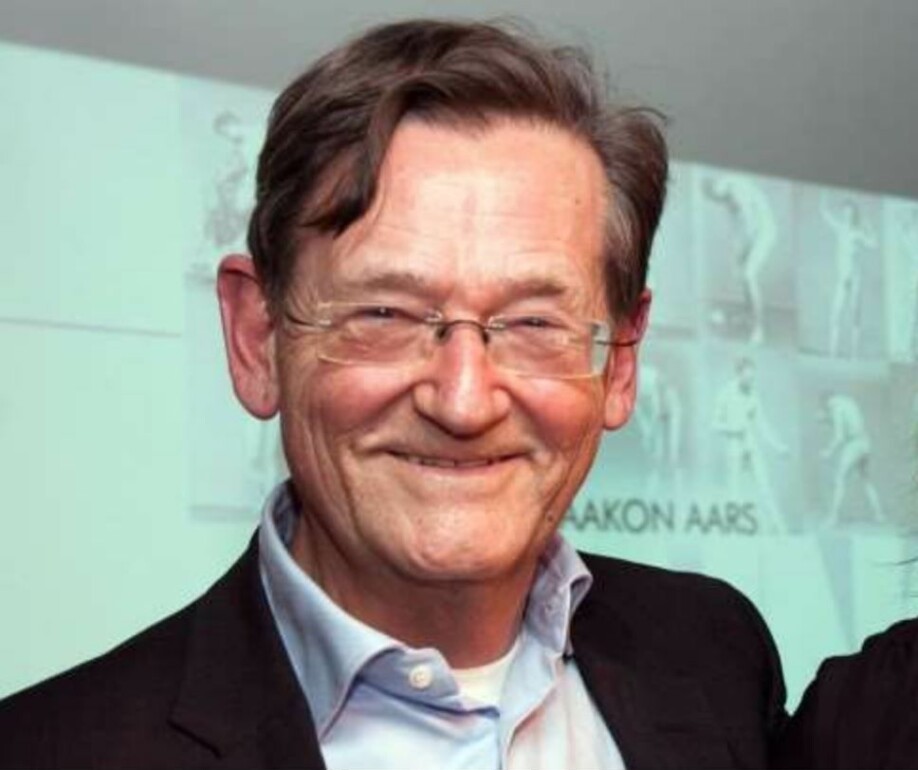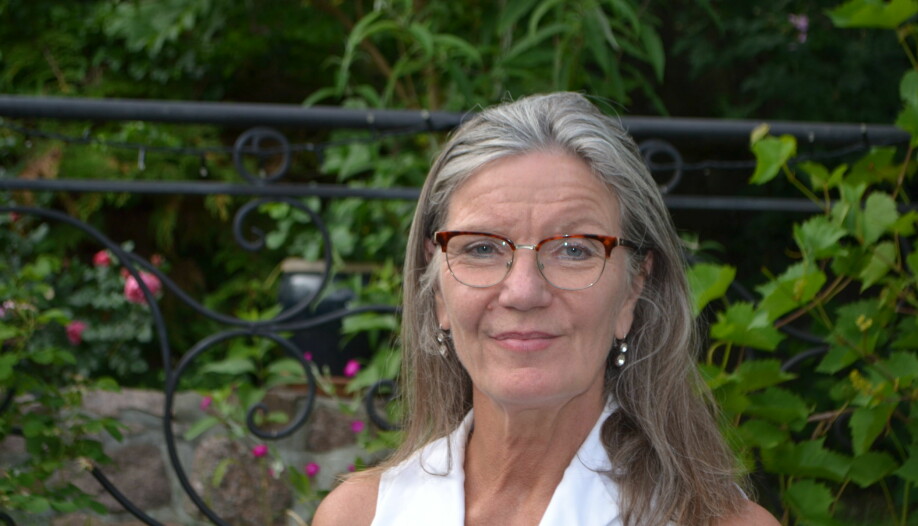
Older men don’t talk enough about sex
Women do so much of the talking that men become mute, according to Elsa Mari Almås, a professor and couple therapist.
A survey among men and women over the age of 65 indicates that communication in the bedrooms of heterosexual Norwegian couples is skewed.
It turns out that older men more often stay silent about their sexual needs than women do, according to Bente Træen, a researcher at the University of Oslo.
She says that she and her colleagues were very surprised by the results.
“We expected that in this generation, the guys would be expressing their preferences and that the ladies would just go along with them,” says Træen.
But in fact the opposite is true.
How does this affect the sex life of older couples?
Men's silence is a common problem
Haakon Aars meets a lot of men and couples who want help with their sex life.
He is a psychiatrist and specialist in clinical sexology and isn’t surprised that older men are the more silent partners when it comes to their own needs.
This self-concealment can create problems in the relationship, he says.
“My experience when heterosexual couples come to me is that it’s often the man who has problems expressing himself about difficulties in the relationship and in bed,” says Aars, who has also written a book about Men's sexuality.
Maybe the man struggles to achieve an erection or the desire, but can’t put into words what is really happening.

Aars works to reverse this pattern in the therapy session. But it’s often too late for men to start talking about how they feel, he says.
Big, strong men
Older men in particular have often been brought up to do the exact opposite.
“Older men were raised to be ‘big and strong’ and to get an education and become good providers,” the therapist says.
But learning to feel and talk about emotions is possible, even as an older adult, according to Aars.
His experience is that men who learn to express their thoughts and feelings about their sexuality end up with a better sex life.
And most often it will benefit the woman as well.
Coinciding needs
Elsa Mari Almås, a couple therapist and professor of sexology at the University of Agder, confirms that couples who experience problems in their sex life usually do better after counselling.
“In the vast majority of cases, the man and the woman have overlapping interests and needs,” says the professor and the couple therapist.
An exception might be if one member of the couple has a very special arousal pattern, she says.
Aars also says that men can open up when they’re allowed to come to therapy alone. Sometimes issues that make it difficult to have a good sex life with your partner come up that way.
For example, it could be that they’re not aroused by their partner, but rather by another woman or that they’re actually gay.
Some men who are in a stable relationship also buy sex and find it difficult to stop, which you can read more about in this article on sciencenorway.no.

Opening the door to a better sex life
But Almås believes most people can at least find a lowest common denominator in bed that provides intimacy and pleasure for both partners.
“When there are problems in the relationship, women often talk so much that men go mute. In therapy, men are given space to talk, and then the gals are often surprised by what the men have to say,” says Almås.
Experiencing physical and emotional intimacy with each other is usually a need that both partners share.
When they both understand this, it can open the door to a better sex life.
Banning intercourse to learn enjoyment
Sensuality training is an exercise that is commonly used for couples with sexual problems.
The couple engages in skin contact and touching each other – but impose a ban on having intercourse.
Part of the goal is for both partners to learn to enjoy, without feeling pressure to perform.
Almås says that men often respond very positively to the exercise. They’ve missed the intimacy.
Women, on the other hand, often believe that men are only interested in penetrating sex and may be surprised by the man's need to feel physically and emotionally close to his partner.
“If only women knew how much love can lie behind an erect penis,” Almås says.
Happy news for women
Træen argues in her article that men’s greater silence about their own sexual needs isn’t only negative.
She points out that the new study is good news for women, because it shows that older women have sexual needs and are good at expressing them.
Traditional gender roles, where women’s sexuality has been more repressed, make it even more important for women to be open about their needs than men,” Træen says.
“When he becomes more open or curious about her preferences, it doesn’t have to mean that he loses himself in the process,” she says.
Previous research done by Træen and her colleagues shows that Norwegian seniors have an active sex life. They masturbate and have sex quite often.

Erection problems
“At the same time, getting older can present physical challenges for many,” Træen adds.
Half of the men over the age of 65 experience erection issues, according to the researcher.
“Men’s bodies are also changing. I sometimes get the impression that menopause is blamed for everything. But just like women, men experience change as they get older. A lot of people have problems with erections, and testosterone levels are lower so you may not have as much desire,” says Træen.
Aars also encounters many older men who have erection problems.
He finds that they are often preoccupied with technicalities. That is, the idea that the lack of an erection is only a physical problem.
Viagra and porn are partly to blame for this attitude, according to the sexologist and psychiatrist. But he points out that Viagra doesn’t help if the man doesn’t have the desire.
Need to enjoy, not perform
The good news is that it is possible to rekindle the desire, with or without an erection.
“Sexuality isn’t dead even if you struggle to achieve an erection,” says Aars.
Intimacy, skin contact and everything that can be done with your fingers and tongue can provide a lot of pleasure for both men and women.
“I try to teach men to enjoy, instead of performing,” he says.
Translated by: Ingrid Nuse.
Read the Norwegian version of this article on forskning.no.
































